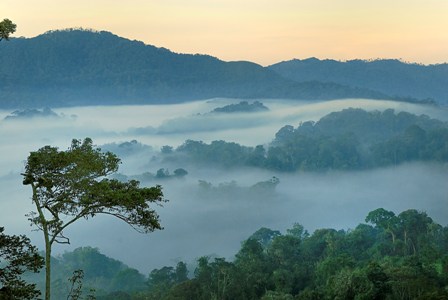 Brazil today signed the REDD+ (Reducing Emissions from Deforestation and Degradation) Partnership at the Oslo Forest and Climate Conference in Norway. The event was attended by representatives of 52 countries. The objective of the agreement is to scale up REDD Plus actions and financing.
Brazil today signed the REDD+ (Reducing Emissions from Deforestation and Degradation) Partnership at the Oslo Forest and Climate Conference in Norway. The event was attended by representatives of 52 countries. The objective of the agreement is to scale up REDD Plus actions and financing.
“Brazil actively participated in the process of developing the REDD+ initiative, and considers it essential to ensuring sustainable forest management in the coming years,” said Environment Minister Izabella Teixeira during a teleconference with journalists on Tuesday, May 25.
Alongside Indonesia, Brazil is a key country in forest preservation policies, as it harbours one of the biggest and most vital rainforests in the world, the Amazon forest, often deemed the “world’s lungâ€. Forest protection is crucial to keep temperatures from rising more than 2 degrees Celsius (or 3.6 Fahrenheit).
According to an AP report, Norwegian Prime Minister Jens Stoltenbeg said the values of forests should be high when these are standing and not down, as they currently are. “Today we commit to change that equation†said the prime minister in his conference opening speech.
“REDD+ is important because it demonstrates that global partnership and action is possible,†added Ms. Teixeira. “Brazil firmly believes in the formal negotiation process, but in the meantime, climate change is too important to wait to begin coordinated actions to fight deforestation. We need to show the world action. REDD+ will set an interim foundation for the formal strategy that is eventually negotiated.â€
However, some analysts question the scheme’s methodology and its effectiveness. “A study last year by the Nairobi-based World Agroforestry Centre showed that in many places, farm woodlots and woody scrub are as important in capturing carbon as forests, but they are not part of the REDD definition†highlights the Guardian’s John Vidal.
On the domestic front, Brazil has developed a new series of efforts to address climate change, to be announced prior to the United Nations Conference on Climate Change in December 2010 in Cancun, Mexico. These include the National REDD Strategy, cooperation with other Southern Hemisphere countries regarding the scheme and a co-operation between the National Institute for Space Research (INPE) and the Food and Agriculture Organization of the United Nations (FAO), one of the UN-REDD implementation agencies, to employ forest monitoring systems in African countries.

![Reblog this post [with Zemanta]](https://img.zemanta.com/reblog_e.png?x-id=271748cd-9381-4c69-9a14-8e4d892765f8)




